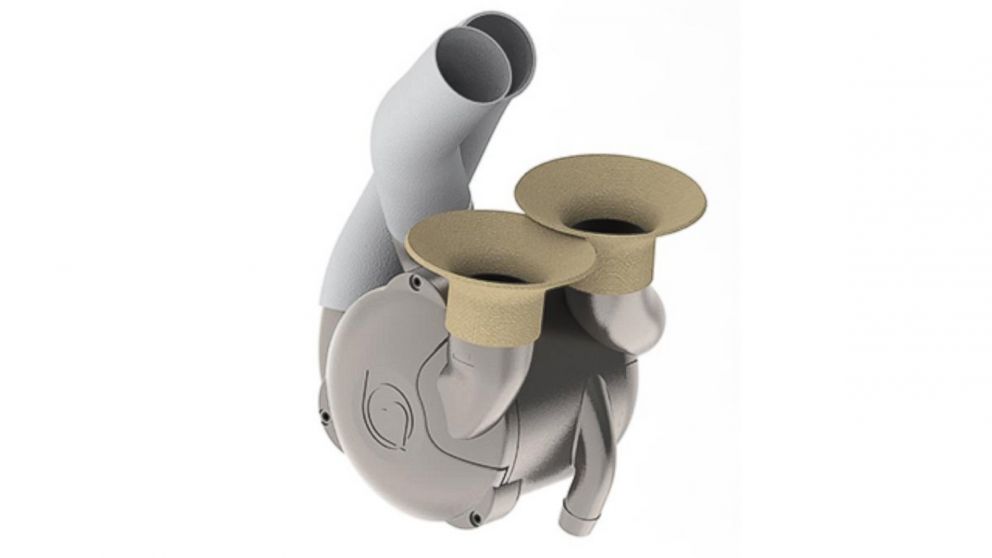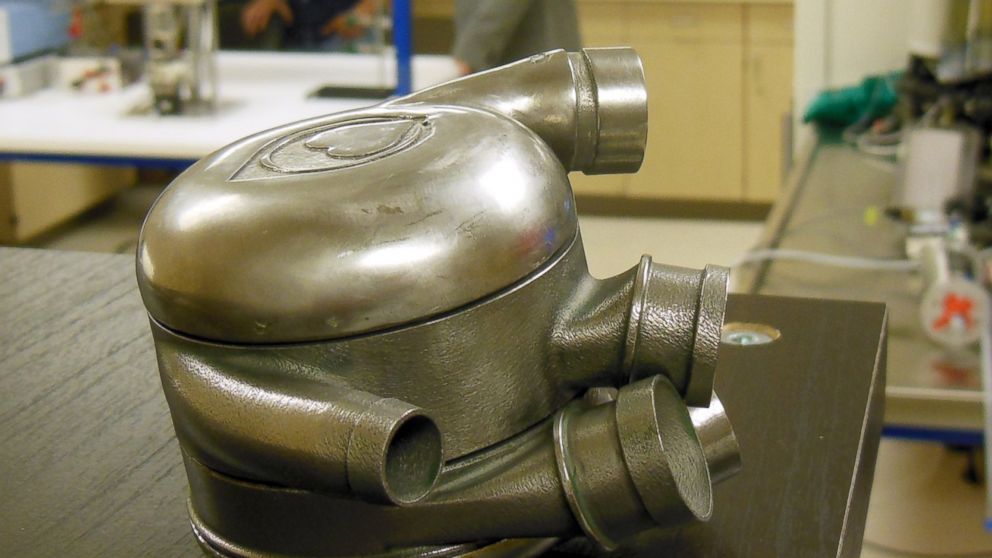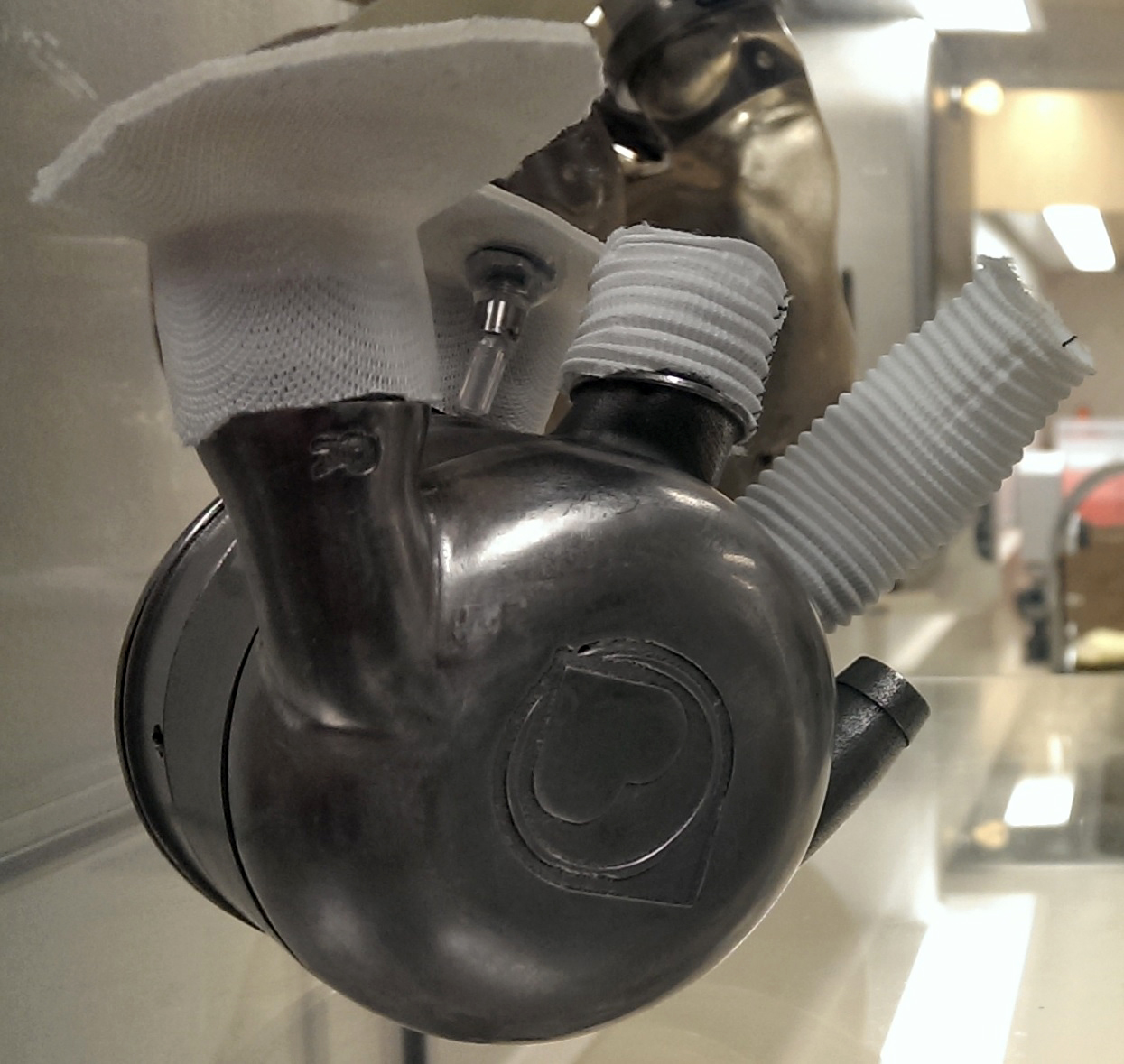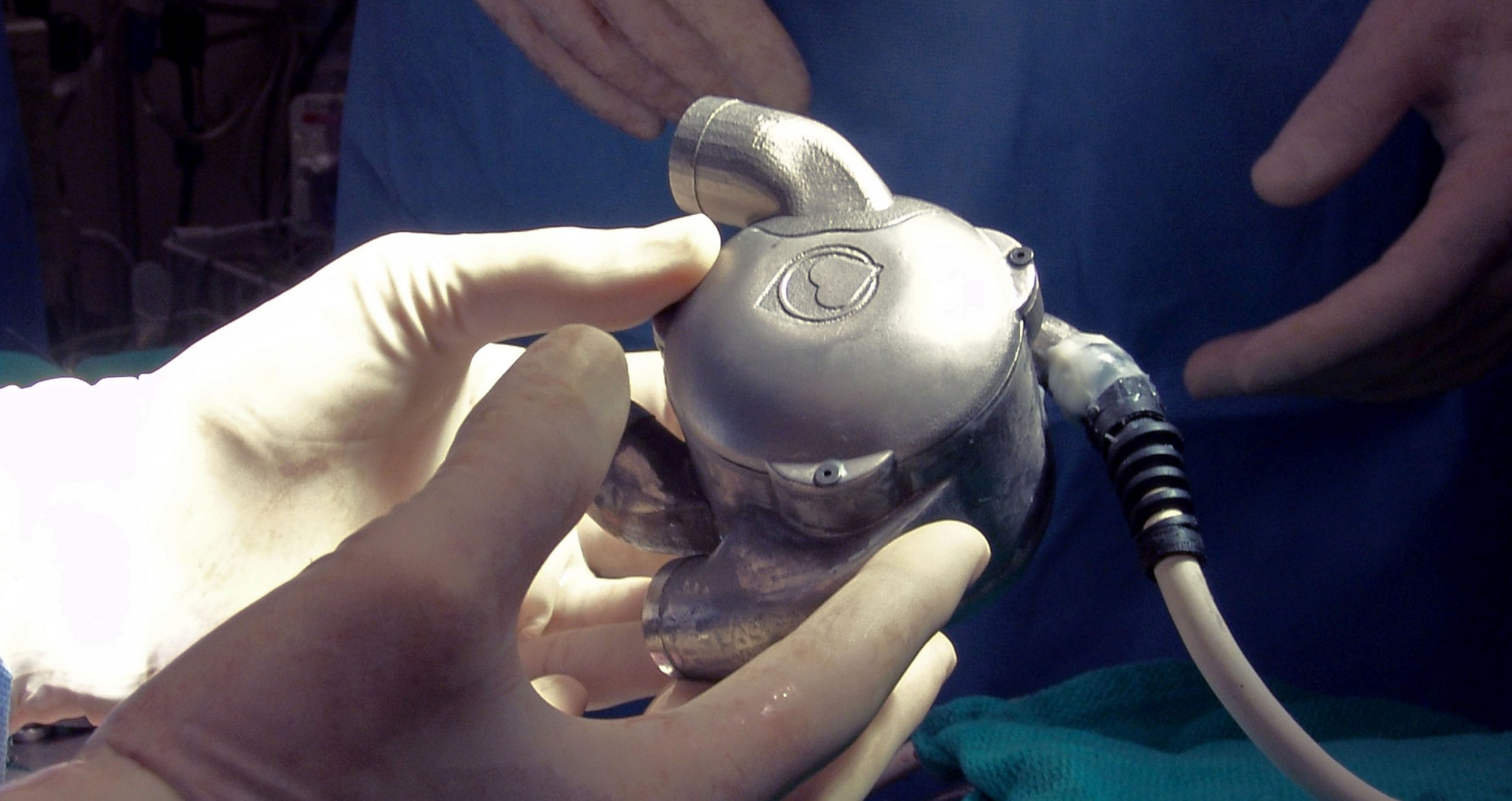New Bionic Heart Doesn't Beat and That's Why It Could Revolutionize Transplants
Scientists are on the brink of creating a bionic heart to replace transplants.
— -- Scientists at the Texas Heart Institute say the perfect bionic heart is within their reach, but it doesn't beat.
The average human heart has to beat 42 million times a year, which means that if it were replaced with a machine with a lot of moving parts, it would quickly wear out, said Dr. William Cohn, chief medical officer of BiVACOR, the company working on the new bionic heart.
Instead, BiVACOR, headquartered in Houston at the Texas Heart Institute, is developing the first device of its kind to have only one moving part, which propels blood through the body instead of pumping it.
"The device has performed in many respects better than any artificial heart anybody has come up with in the last 50 years," Cohn said, adding that he and his colleagues consider it the "first legitimate shot on goal for a permanent mechanical replacement for the failing human heart."

When Australian researcher Daniel Timms came to him three years ago looking for a new home for his project, Cohn said he knew it was something special, even though Timms didn't have a working prototype at the time. Researchers around the world had been working on the project for Timms without pay, and they all relocated to Houston, Cohn noted.
Now, the BiVACOR team has developed a working prototype and put it into large animals, he said. They're able to walk on a treadmill and live for a month before the team culls them to examine the heart's effect on their liver, brain and other organs.
"Kidney function, lung function, everything works beautifully throughout," Cohn said.

The heart is about half the size of a soda can, Cohn said. It has a spinning disk with fins suspended by two magnetic fields so that it's never touching anything.
- It spins 2,000 to 3,000 times a minute.
- The disk micro-adjusts 20,000 times a second to keep the disk spinning flat.
- Because the right side of your heart works harder when you cough, and the left side of your heart works harder when you exercise, it also adjusts the balance 20 times a second.
There are 4,060 people currently awaiting heart transplants in the United States and 39 more awaiting heart-lung transplants, according to the Organ Procurement and Transplantation Network. Overall, there are 123,289 people waiting for organs in the United states, and an average of 21 people die each day waiting for transplant.






